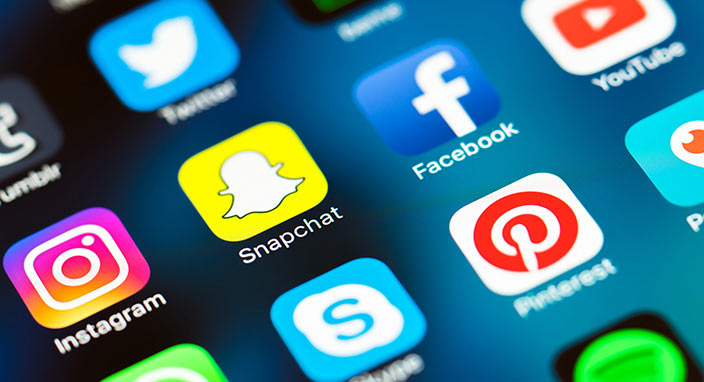Social media has an important place in our lives. But on social media, do we sacrifice not only our time but also our mental health?
Three billion people in the world, 40 percent of the total population uses social media. Research shows that we spend an average of two hours a day on social media. This means half a million tweets and Snapchat photo sharing every minute.
Stress
People use social media to get away from their everyday stress and distress. However, research shows that instead of making stress go away, social media makes people more stressful. Research on 1800 people show that women are more stressed than men. Twitter is the biggest source of stress in the social media. But women feel less stressful as they use Twitter. The reason why social media doesn’t have the same effect on men is that men’s relationship with social media is more distant. Researchers concluded that the use of social media in general reduced the amount of stress.
Mood
In 2014, the Austrian researchers observed that the mental state of people was down after 20 minutes of Facebook use. The reason of this , is that people see Facebook as a waste of time.
Another study shows that good or bad mood can spread across social media among people. Bad weather increases negative shares by 1 percent. There is more spreading of positive shares. But it is not yet known whether this really has a morale boost.
Anxiety
The researchers examined symptoms such as anxiety, restlessness, sleeping and concentrating difficulty triggered by social media. Those who used seven or more social media platforms had three times more general anxiety symptoms than those using 0-2 platforms. However, it is not known how social media causes anxiety. More research is needed on this issue.
Depression
Although some research links depression and use of social media, there are studies showing that it is possible for social media to be used in a good way that leads to good results. In two studies conducted on 700 students, depressive symptoms, feelings of worthlessness, and hopelessness were related to the quality of interactions with social media. Negative interactions showed more depression. When a similar study was carried out in 1700 in 2016, the risk of depression and anxiety increased threefold among those using the largest number of social media platforms. The reasons for this include bullying over social media, distorted ideas about the lives of others, and the feeling of wasted time on social media. But researchers are also working on how to use social media for early detection of depression. According to the categories prepared by 476 people ‘s Twitter shares, 70% of the cases had the right to predict depression before the symptoms of depression occurred. Last year, a similar system was established by examining the photos of 166 people in Instagram and the results were equally successful.
There is not enough information to reach definite conclusions. But data shows that social media influences people differently depending on their personality traits and previous conditions.

